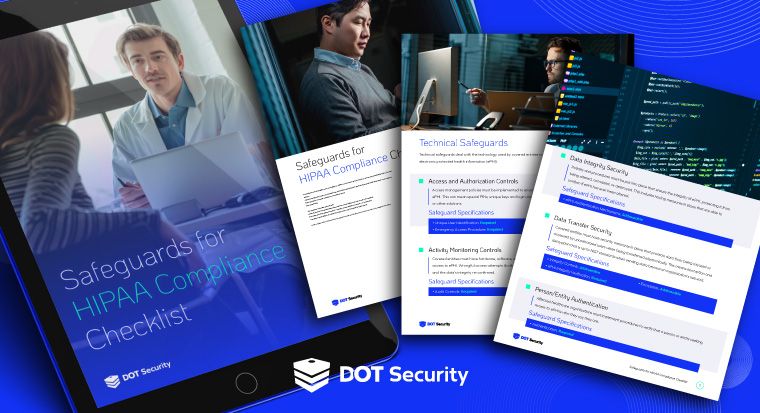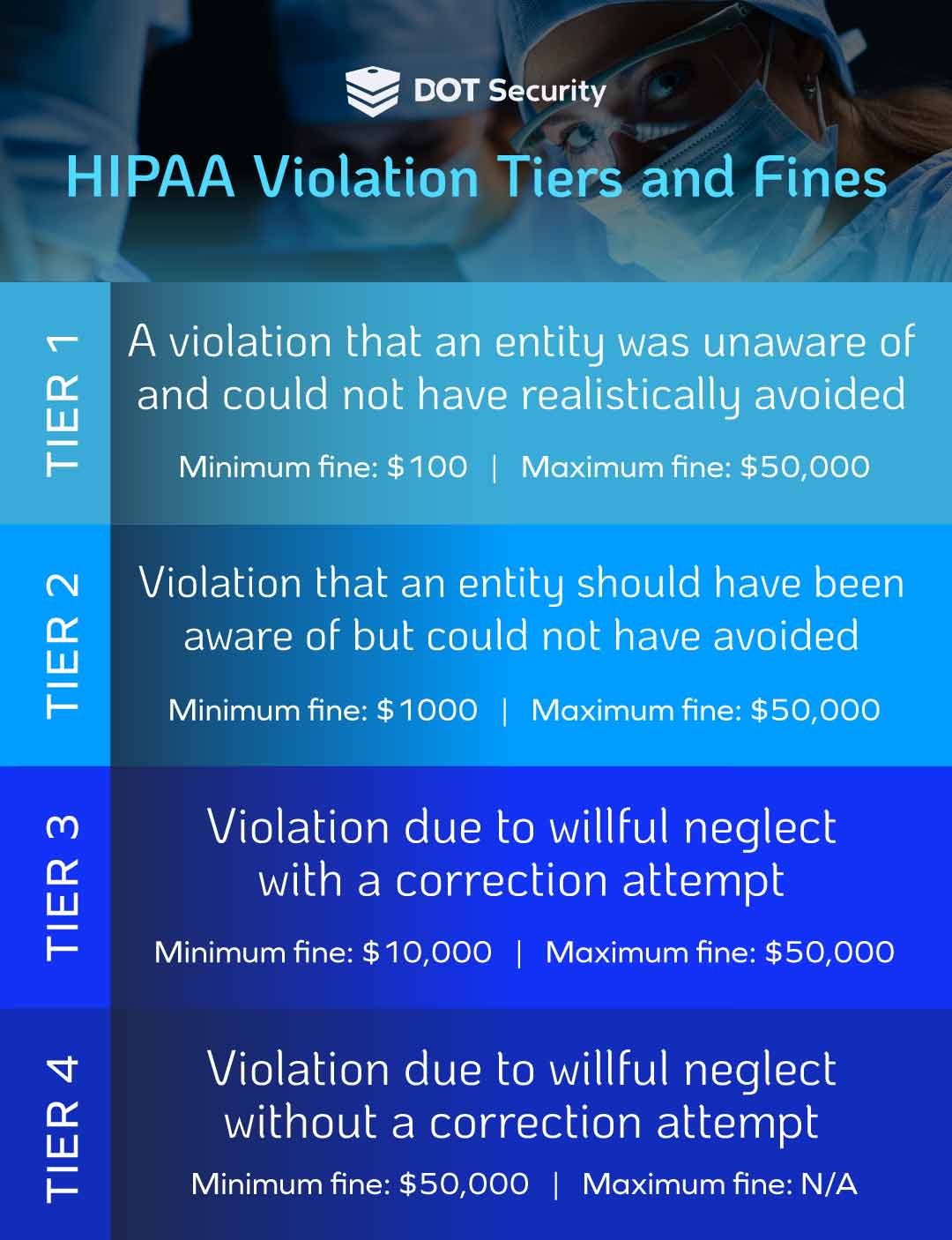Compliance Services
Checklist: What are the HIPAA Safeguards for Compliance?
May 09, 2023
5 minutes

Looking to ensure your healthcare organization is HIPAA-compliant and protected against data breaches?
DOT Security’s exclusive HIPAA compliance checklist provides a detailed breakdown of the technical, physical, and administrative safeguards required for compliance. Access it by filling the form below!
Access your file by filling out this form
In this checklist you get a comprehensive guide to each safeguard category, complete with the procedures, actions, and equipment necessary for meeting HIPAA standards.
Protect your patients' information and avoid costly fines with our essential HIPAA checklist. Fill out the form now to get started.

What Are HIPAA Safeguards?
HIPAA has established three main types of safeguards to detail what a covered entity needs to meet compliance standards. Each category tackles a different area of security needed to protect protected health information (PHI) by implementing unique security measures. Here’s a quick rundown of each one and what they cover:
- Technical Safeguards: The technical safeguards relate to the technology used by covered entities to collect, manage, and transfer PHI. They detail the procedures that organizations need to take to protect information from unauthorized access including encryption and identity verification.
- Physical Safeguards: Physical safeguards are aimed at a covered entity's physical infrastructure, like buildings and equipment. These safeguards are designed to protect PHI and the machines that store it from unauthorized intrusion or access. These safeguards include measures like building access management and document disposal.
- Administrative Safeguards: The administrative safeguards tackle policies and procedures to be implemented by covered entities to maintain the security of PHI and managing how new security measures are developed and maintained by the people who handle it.
Why Do Businesses Need HIPAA Compliance?
For covered entities, maintaining compliance with HIPAA is critically important in order to protect the information of their patients. Additionally, by adhering to HIPAA requirements, you can avoid the fines and legal fees health care providers and insurers deal with if they expose private patient information.

HIPAA compliance leads to better patient outcomes, increased trust in organizations from their patients and the public, and the avoidance of reputational harm that comes from data theft.
Implementing the security standards set up by HIPAA is critically important for covered entities to continue to provide optimal care and attract new patients.
Learn more about these safeguards today. Fill out the form above and use our HIPAA cybersecurity compliance checklist to see what you have, what you need, and how you can become compliant.
